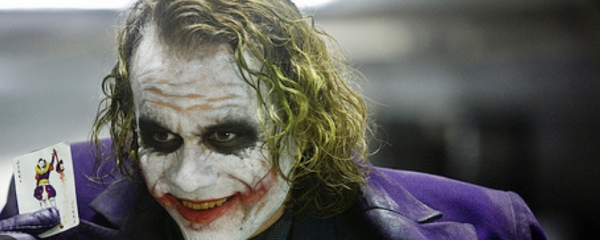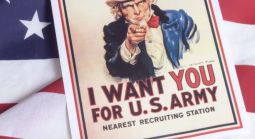How a Secretive Gambler Called 'The Joker' Took Down the Texas Lottery
It was the story that rocked the world of state lotteries in the US. The scandal involving the Texas Lottery actually had tentacles reaching Europe. And now we are learning how the scheme would ultimately get uncovered.
The Scandal
Texas Attorney General Ken Paxton announced in February he was launching an investigation into a suspicious $83.5 million Texas Lottery win as well as that of a $95 million prize in 2023 purchased their odds-defying tickets.
At the heart of the issue, Texas officials say, is whether the games are on a level playing field. The companies that purchase lottery tickets for customers remotely, also known as couriers, are at the heart of the investigation.
This resulted in lawmakers draftking legislation SB 1346, which called for the prohibition of sales of Texas Lottery tickets to those attempting to purchase all possible winning tickets for a drawing. This practice, commonly referred to as “bulk purchasing,” cannot be performed using a lottery courier service platform, and our companies have never engaged in the facilitation or fulfillment of bulk purchasing activity.
The Coalition of Texas Lottery Couriers (CTLC) - Jackpocket, Jackpot.com and Lotto.com - advised Gambling911.com last month that they strongly suppored SB 1346 by Senator Bryan Hughes.
The Coalition released a statement explaining that they "have for years advocated for statewide regulatory standards, including a prohibition on bulk purchases, and have been consistently told by the Texas Lottery Commissionthat it did not have the authority to regulate lottery couriers.
"Lottery couriers, which have been legally and responsibly operating in Texas since 2019, while always maintaining a transparent and professional relationship with the Texas Lottery Commission, will continue to encourage a regulatory solution, such as the one proposed by HB 3201, which allows our millions of Texas customers to continue to safely and conveniently order lottery tickets using our services."
Traced Back to Malta
The scandal stretches back to April 2023, according to The Houston Chronicle.
The Houston Chronicle report details how a parimutuel betting site from England (Colossus Bets) and a software provider from Malta (Spinola Gaming) allegedly colluded with one another to purchase 25.8 million tickets (at $1 each) for a Lotto Texas draw — resulting in the $95 million jackpot win.
From The Houston Chronicle:
An entity called Rook TX effectively purchased the jackpot, collecting a one-time payment of $57.8 million, by acquiring virtually all of the 25.8 million possible number combinations. The operation was planned in Malta and funded by a London betting company. It was carried out by four Texas retailers, all connected to online sales companies called couriers.
The Texas Lottery Commission helped in several ways behind the scenes. Prior to the draw, it filled rush orders from the retailers requesting dozens of extra terminals — even though three had sold few, if any tickets in the previous months.
“Texas citizens deserve far better than bad actors getting rich off of a lottery system that is open to exploitation, and we will hold anyone who engages in illegal activity accountable,” Paxton said in a statement.
Couriers are companies that buy and send lottery tickets on behalf of customers online. The practice bypasses state law that requires tickets to be purchased in person.
The Joker
It's a fascinating read, courtesy of The Wall Street Journal.
"A global team of gambling whizzes hatched a scheme to snag the jackpot; millions of tickets in 72 hours."
You'll need to check out the article here for more, but an excerpt appears below.
In the spring of 2023, a London banker-turned-bookmaker reached out to a few contacts with an audacious request: Can you help me take down the Texas lottery?
Bernard Marantelli had a plan in mind. He and his partners would buy nearly every possible number in a coming drawing. There were 25.8 million potential number combinations. The tickets were $1 apiece. The jackpot was heading to $95 million. If nobody else also picked the winning numbers, the profit would be nearly $60 million.
Marantelli flew to the U.S. with a few trusted lieutenants. They set up shop in a defunct dentist’s office, a warehouse and two other spots in Texas. The crew worked out a way to get official ticket-printing terminals. Trucks hauled in dozens of them and reams of paper.
Over three days, the machines—manned by a disparate bunch of associates and some of their children—screeched away nearly around the clock, spitting out 100 or more tickets every second. Texas politicians later likened the operation to a sweatshop.
The WSJ piece highlights how this lottery scheme has targeted other states besides Texas, and there's been some success.
A group of Princeton University graduates, incorporated under the name Black Swan Capital, has won millions in recent years playing scratch-off tickets and other lottery games in various states. Lottery officials and others who have tracked their tactics say they appear to calculate when the math is most in their favor, using publicly available information such as how many prizes are in a game and how many remain unclaimed. When the odds are right, they swoop in, hoping to win back more money than they spend.
One Black Swan team member collected a $5 million win in Missouri in 2019; another won $10 million in North Carolina in 2022. In Maryland, a Black Swan team used lottery machines in four liquor stores for four days to win a $2.6 million prize.
We haven't heard the end of this as investigations are almost certain to be launched in other states.
|
|
















